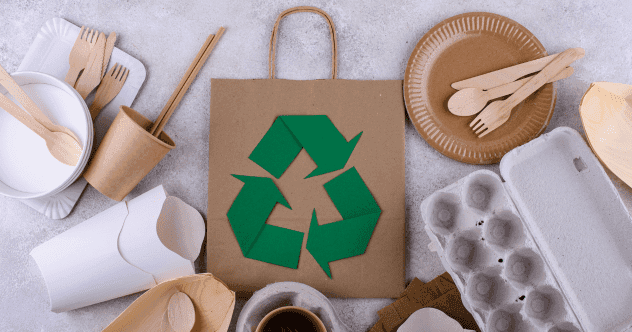In a world increasingly concerned about sustainability, adopting green practices is more critical than ever. But with so many eco-friendly tips out there, it’s hard to know where to start. Here are ten impactful green practices that can help you reduce your carbon footprint and protect our planet.
Composting
Composting is a simple yet powerful way to reduce waste and enrich the earth. By turning your kitchen scraps into nutrient-rich soil, you’re reducing landfill waste and greenhouse gas emissions. Think of it as recycling for your organic waste!
Composting not only reduces waste but also improves soil health, promotes plant growth, and helps retain moisture, reducing your watering needs. Plus, it minimizes the need for chemical fertilizers, which can harm the environment.
Getting Started
- Purchase or build a compost bin.
- Collect kitchen scraps like fruit and vegetable peels, eggshells, and coffee grounds. Avoid meat and dairy, as they attract pests and decompose slowly.
- Layer greens (kitchen scraps) with browns (dry leaves, straw, or shredded paper) to balance nitrogen and carbon.
- Turn the pile regularly to aerate it and speed up decomposition.
In a few months to a year, you’ll have nutrient-rich compost ready for your garden.
Buy Second Hand
In an era of fast fashion, the mantra “reduce, reuse, recycle” is more relevant than ever. Buying second-hand items, from clothes to furniture, is an easy way to reduce your environmental footprint. It’s more than just scoring a vintage find or saving money; it’s a statement for sustainability.
The fashion industry contributes about 10% of global carbon emissions, and a single cotton T-shirt can require up to 2,700 liters of water to produce. By choosing pre-loved items, you’re diverting usable products from landfills, decreasing the demand for new production, and slashing your carbon footprint.
Explore thrift stores, consignment shops, online marketplaces, and garage sales for unique and affordable items. You’ll be surprised by the quality and variety available, from designer clothes to home décor.
Go Paperless
Going paperless is a practical step toward a greener future. Reducing paper usage can significantly impact deforestation, carbon emissions, and waste disposal.
The average office worker uses about 10,000 sheets of paper each year. By adopting paperless practices, you can help save forests, reduce carbon emissions from paper production, and minimize waste.
Digitize your documents using a scanner or apps like Adobe Scan or Microsoft Office Lens. Store them in cloud-based storage like Google Drive, Dropbox, or Microsoft OneDrive for easy access and to reduce clutter.
Break old habits by opting for electronic billing, online statements, and digital note-taking apps like Evernote or Notion. Use email, messaging apps, and video conferencing to minimize printed memos and letters.
Encourage your workplace, community, and friends to adopt paperless habits. Share your tips and successes to inspire others.
Reduce Your Beauty Waste
Our beauty routines can have a significant environmental impact. The beauty industry generates around 120 billion units of packaging annually. It’s time to reduce our beauty waste and give back to Mother Earth.
Beauty products often come wrapped in plastic and housed in non-recyclable containers, and they frequently contain harmful chemicals. By minimizing beauty waste, you’re decluttering your vanity and reducing your carbon footprint.
Getting Started
- Assess your beauty stash and opt for products with minimal packaging or those made from recyclable materials.
- Make your own beauty treatments using natural ingredients like coconut oil, avocado, and honey. DIY scrubs, masks, and moisturizers reduce waste and are chemical-free.
- Use multi-purpose products like tinted moisturizers with SPF or cheek stains that can also be used as lip color.
- Ensure you recycle empty beauty containers properly. Some brands offer incentives for returning used packaging.
Use Eco-Cleaning Products
Many conventional cleaning products contain harsh chemicals that can harm the environment, from toxic fumes to water pollutants. Eco-cleaning products are a sustainable alternative.
Eco-cleaning products are made from natural, biodegradable ingredients, minimizing their impact on ecosystems. They can also improve indoor air quality, reducing exposure to harmful chemicals and allergens. Many eco-friendly options come in recyclable or refillable packaging, reducing plastic waste.
Look for products labeled “green,” “eco-friendly,” or “biodegradable.” Or, make your own DIY cleaners using simple ingredients like vinegar, baking soda, and essential oils. These homemade solutions are effective and budget-friendly.
Limit Your Food Waste
Food waste contributes to climate change by producing methane, a potent greenhouse gas, in landfills. Additionally, wasted food means wasted resources like water, energy, and land.
By reducing food waste, we can help lessen environmental impacts and conserve resources.
Getting Started
- Plan your meals and make a shopping list to avoid impulse buys.
- Use leftovers in new ways instead of letting them go to waste.
- Store food properly to extend its shelf life.
- Check your fridge regularly for items that need to be used soon.
Ditch Single-Use Items
Single-use plastics are everywhere, from plastic bags to straws. These items are used briefly and then discarded, causing significant environmental damage.
Single-use plastics take centuries to decompose, breaking down into microplastics that contaminate soil, waterways, and air. These microplastics harm wildlife, ecosystems, and potentially human health. By reducing your reliance on single-use plastics, you’re protecting the planet.
Starting a plastic-free lifestyle involves making small, conscious choices.
- Invest in reusable items like cloth bags, stainless steel straws, and glass containers.
- Use a reusable water bottle instead of buying bottled water.
Decline plastic utensils, cups, and takeaway containers when dining out. Encourage businesses to offer sustainable alternatives.
Protect Pollinators
Pollinators like bees, butterflies, birds, and bats are essential to our ecosystems, ensuring the reproduction of many plants, including food crops. However, they face threats from habitat loss, pesticide use, climate change, and disease.
Pollinators pollinate over 75% of flowering plants and crops worldwide. Without them, we would face reduced food options and a less vibrant world.
How You Can Help
- Create a pollinator-friendly garden with a variety of native flowers that bloom at different times of the year.
- Avoid using pesticides, herbicides, and other harmful chemicals.
- Provide nesting sites for pollinators by leaving a wild patch in your garden or putting up bee hotels.
- Educate others about the importance of pollinators and advocate for policies that protect them.
Sustainably Commute
Sustainable commuting reduces your carbon footprint, keeps you fit, and saves money.
Transportation accounts for nearly a quarter of global greenhouse gas emissions. By biking, walking, or using public transportation instead of driving, you’re reducing carbon emissions.
If you live close to work or school, consider walking or biking. If not, combine biking or walking with public transit. Carpooling or using buses, trains, or subways also reduces traffic congestion and emissions.
Reduce, Reuse & Recycle
Reducing, reusing, and recycling are the cornerstones of sustainable living.
Reducing consumption means less energy and resources are used in production and transportation. Ask yourself if you really need that new item or if you can use what you already have.
Instead of throwing things away after a single use, give them a second life. Use a reusable water bottle, repurpose old jars, and get creative with how you reuse items.
Recycling turns used materials into new products, conserving energy and reducing the need for raw materials. Recycle paper, plastic, glass, and aluminum, and check your local recycling guidelines for more information.
By embracing these ten green practices, you can make a significant difference in protecting our planet and promoting a more sustainable future. Every small action counts!










